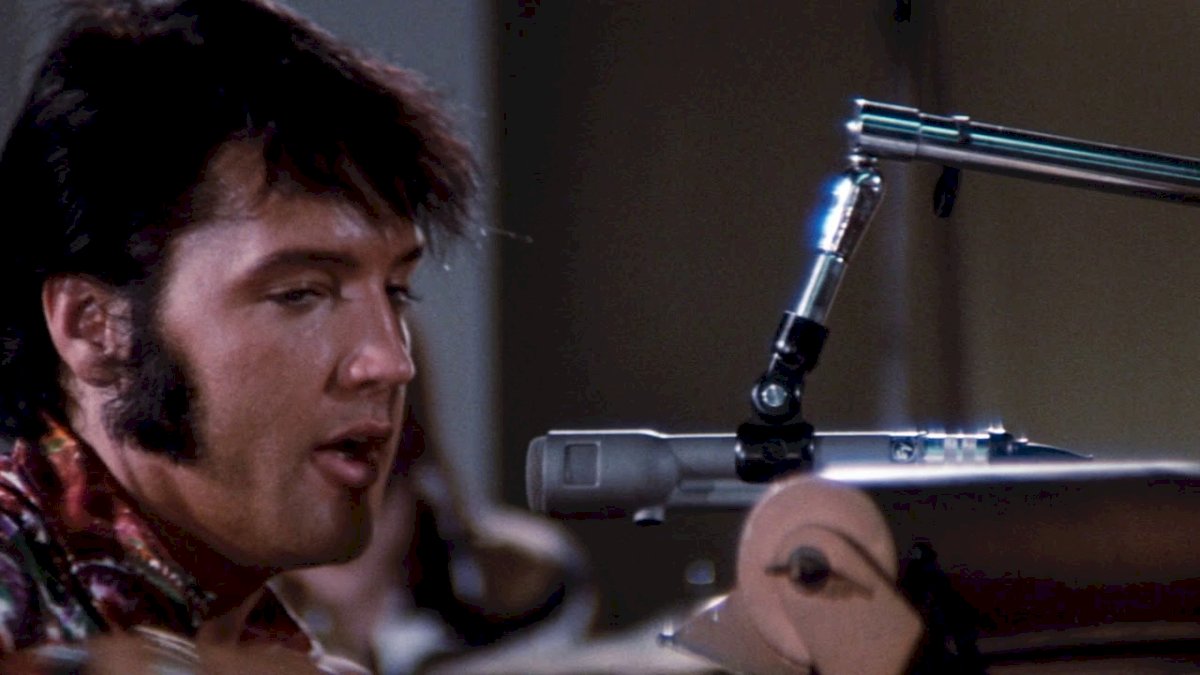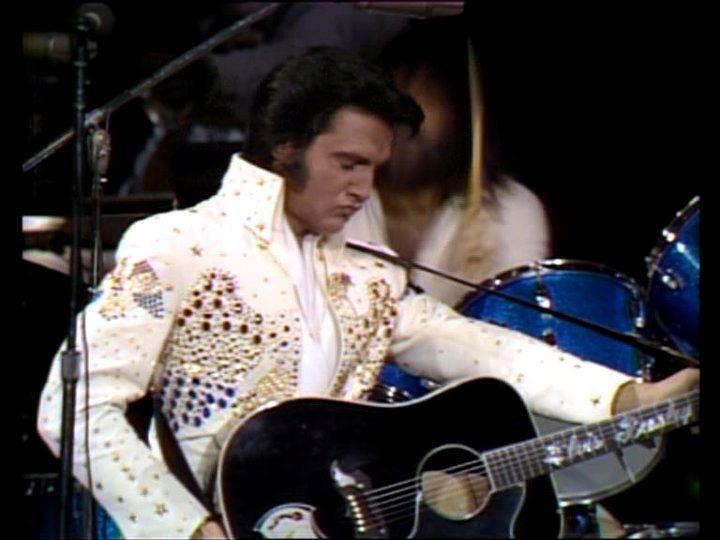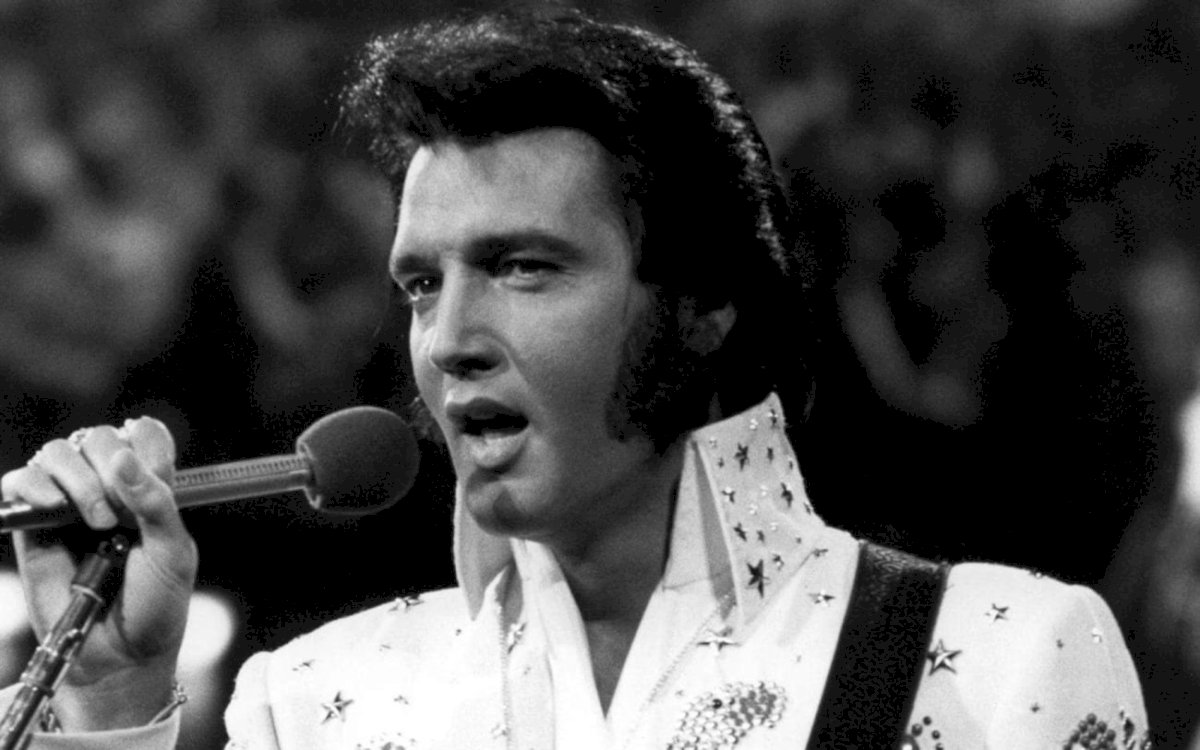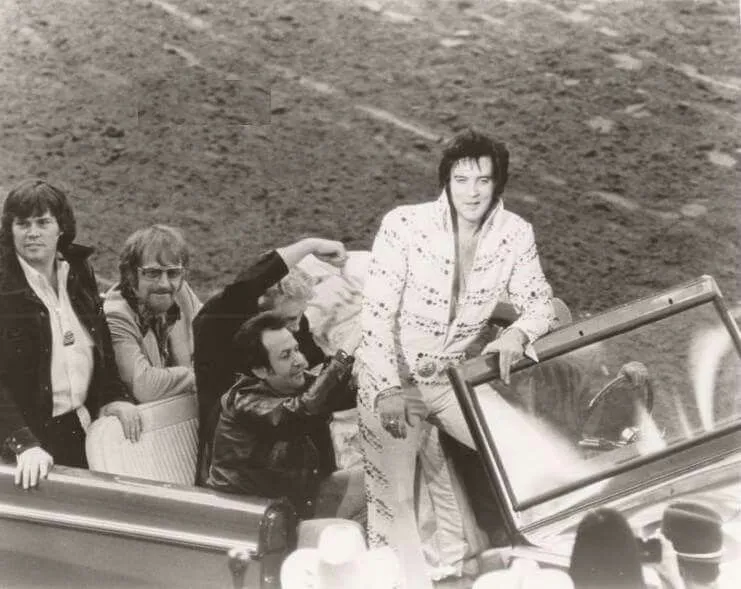In June 1959, a global phenomenon named Elvis Presley found himself amidst the cobblestone streets and charming cafes of Paris. While stationed in Germany with the U.S. Army, the King of Rock and Roll embarked on a whirlwind Parisian adventure, a trip that, despite its brevity, sent a shockwave through the city and solidified his international superstardom. This article explores Elvis' Parisian sojourn, focusing on the captivating dynamic between him and his legions of adoring fans.
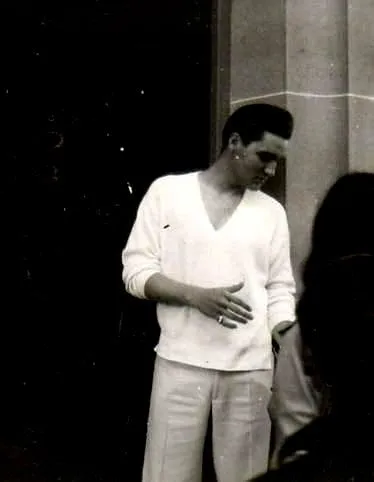
Elvis' time in Paris wasn't for military duty, but rather a 15-day furlough. News of his arrival spread like wildfire, igniting a frenzy among young Parisians. Rock and roll, though still in its nascent stages in Europe, had captivated a generation yearning for a break from traditional music. Elvis, with his electrifying performances and undeniable charisma, became the embodiment of that rebellion.
His residence, the luxurious Hotel Prince de Galles on the Champs-Élysées, became a makeshift pilgrimage site. Throughout his stay, throngs of fans, predominantly young women, would gather outside the hotel, hoping for a glimpse of their idol. Grainy photographs and newsreels capture the scene: girls pressed against police barricades, screaming his name, faces alight with fervent adoration. One French fan, quoted in a 1959 newspaper article, described it perfectly: "He's more than a singer, he's a dream."

Elvis, ever the charmer, wouldn't disappoint his fans entirely. Several accounts detail him appearing on the hotel balcony, briefly acknowledging the crowd with a wave or a shy smile. These fleeting moments were enough to send the fans into a frenzy. Imagine the electrifying thrill – a personal connection, however brief, with the most exciting personality of the era.
The media, of course, fanned the flames. French newspapers plastered Elvis' picture on their front pages, chronicling his every move. Articles debated the cultural impact of rock and roll, with some hailing it as a symbol of youthful rebellion and others decrying it as a corrupting influence. Regardless of their stance, the media ensured that Elvis remained in the public eye, further amplifying the fans' excitement.

While Elvis' official schedule lacked any public performances, the allure of the superstar proved irresistible. He frequented Parisian hotspots like the Moulin Rouge and the Lido, renowned for their extravagant shows and beautiful dancers. His presence there, naturally, caused a stir. Stories abound of excited fans scrambling for tables, hoping to catch a glimpse of the King amidst the high kicks and dazzling costumes.
One fascinating aspect of Elvis' Parisian experience is the cultural clash. Rock and roll, with its emphasis on rhythm and rebellion, stood in stark contrast to the more traditional French music scene. Yet, the fans embraced it wholeheartedly. Elvis transcended language barriers with his raw energy and undeniable stage presence, proving that the language of music could be universally understood.

Elvis' Parisian visit, though short-lived, had a lasting impact. It showcased the international appeal of rock and roll, a genre poised to sweep the globe. More importantly, it highlighted the unwavering devotion of Elvis' fans. Their passionate response, a blend of excitement and idolization, cemented his status as a cultural icon.
The story of Elvis Presley in Paris in 1959 isn't just about a celebrity visit. It's a testament to the power of music to transcend borders and cultures. It's a snapshot of a young generation yearning for something new and exciting. But most importantly, it's a reminder of the enduring connection between an artist and their fans, a connection that continues to inspire generations.
